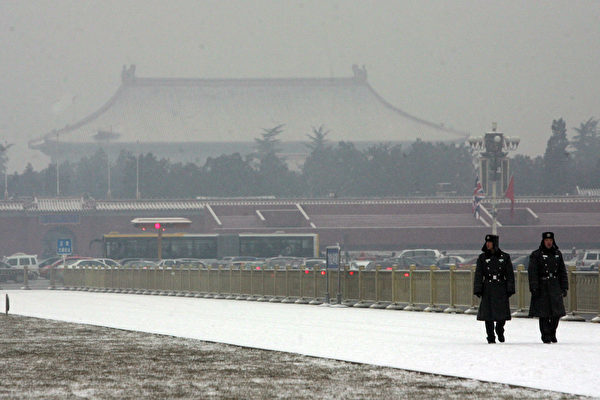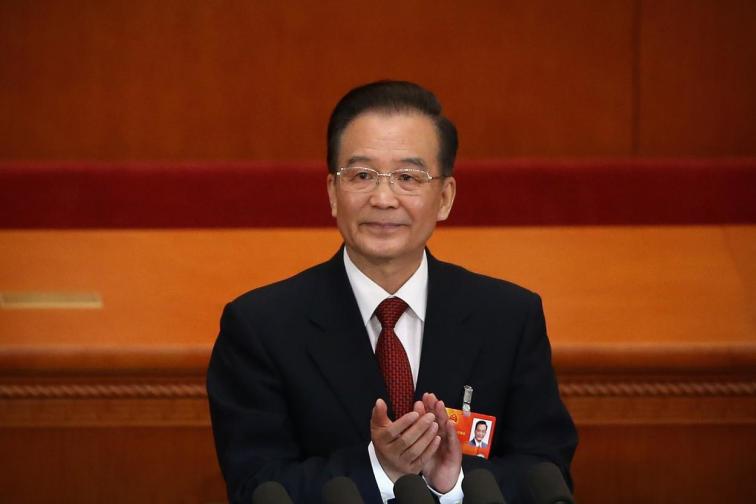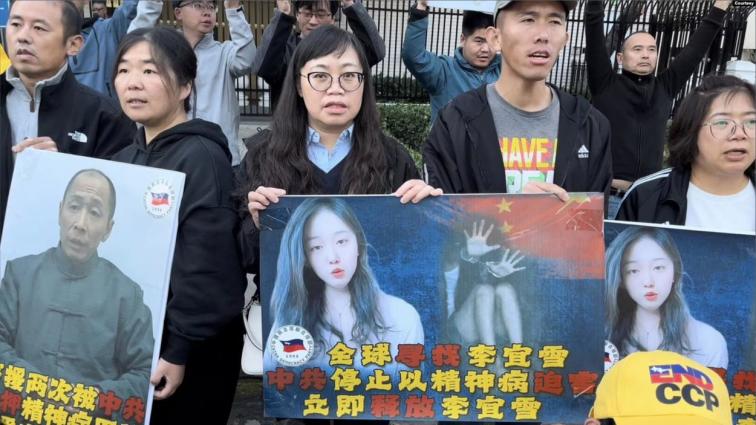Illustrative Image: The BYD logo decoration on the hubcap of a BYD electric vehicle. (Sean Gallup/Getty Images)
[People News] On December 23, Brazil’s Ministry of Labor, along with five other government agencies, conducted a joint enforcement action at the construction site of a BYD factory in Brazil. They “rescued” 163 Chinese workers who were living and working under what were described as “slave-like” conditions. During the operation, the task force shut down worker dormitories and parts of the construction site, and some workers were relocated to better-equipped hotels. Subsequently, Brazil’s Ministry of Foreign Affairs announced it had ceased issuing temporary work visas to BYD.
Under Brazilian law, “slave-like conditions” include debt bondage and work environments that violate human dignity. In this case, the Brazilian Ministry of Labor identified the following as violations of human dignity at the BYD site:
Overcrowded dormitories lacking mattresses or personal storage; 600 workers sharing eight unisex showers; 31 workers sharing a single toilet, forcing workers to wake up at 4 a.m. to queue for the restroom before their 5:30 a.m. shift; Toilets located too close to dormitories; Kitchens without refrigeration, with food for the next day left out in the open; Ten-hour workdays, seven days a week; Workers being injured on the job due to fatigue; Ill workers not receiving timely medical attention; Workers being subjected to verbal abuse, physical assaults, and severe psychological stress from supervisors.
Additionally, workers had to pay security deposits, had their passports confiscated, and were denied parts of their wages. If they terminated their contracts, they faced significant financial losses. Internationally, these indicators are often recognized as signs of human trafficking.
Conditions deemed “slave-like” by Brazilian authorities are not uncommon in China; they are, in fact, pervasive. What we consider "normal" working and living conditions in China are illegal in Brazil and categorized as violations of human dignity. This stark difference leaves us questioning: Are we so unaware of what constitutes a dignified existence, or have we grown numb to such conditions?
In response to the incident, BYD stated that it would improve labor conditions, including safety, health, and dormitory standards, to meet Brazilian legal requirements. But can BYD’s claim of ignorance about Brazilian labor laws truly explain this situation?
The answer is no. BYD had also hired 470 local Brazilian workers, who were treated in full compliance with local labor laws. These workers received fair wages and benefits, and their working conditions met local standards. There were no reports of "slave-like" treatment among the Brazilian workers.
BYD’s blatant double standard is infuriating. Why does BYD treat its compatriots abroad so poorly while adhering to local laws for foreign workers? What gives BYD the audacity to act this way?
Firstly, Support from the Chinese Government
In the early stages of the incident, BYD issued a statement claiming to sever ties with Jinjiang Company, expressing complete ignorance of the matter. However, just three days later, BYD reversed its stance, aligning with Jinjiang to jointly deflect blame. BYD’s public relations manager, Li Yunfei, posted on social media, accusing “external forces” of fabricating charges, and suggested the accusations were baseless.
On December 27, China announced an investigation into beef imports, targeting Brazil, the world’s largest beef exporter and China’s largest beef supplier. China imports 1 million tons of beef from Brazil annually. This sudden investigation was widely seen as a retaliatory move directed at Brazil.
The Brazilian government’s decision to punish BYD for its “slave-like” labor practices under its own laws embarrassed the Chinese Communist Party (CCP). The CCP often portrays Brazil as less developed compared to China in its propaganda. Yet Brazil’s laws explicitly protect human rights and dignity, while China lacks equivalent legal protections for workers. This stark contrast exposes the CCP’s disregard for human rights and its fundamental nature of oppressing its own people.
The CCP’s long-standing exploitation and oppression of its citizens have enabled companies like BYD to adopt low-cost strategies, gaining a competitive edge in overseas markets. Furthermore, BYD benefits from the CCP’s strategic subsidies. With the CCP as a backing force, BYD feels emboldened to enforce double standards abroad and continue exploiting Chinese workers.
Secondly, Workers Supporting the Employer’s Illegal Practices
Jinjiang Company claimed on social media that the label of “slave labor” was unfounded and had “insulted the dignity and violated the human rights of its employees, causing severe harm to their sense of respect.” It attached a statement signed and fingerprinted by all workers, declaring their satisfaction with current living and working conditions, denying any confiscation of wages or passports by management.
From the perspective of Brazilian officials, these Chinese workers, seemingly trapped in “slave-like” conditions, paradoxically expressed support for their employers after being “rescued.” Such logic is baffling—why would “rescue” harm their dignity while “enslavement” protects it? However, deeper consideration reveals hidden pressures behind such statements.
Imagine: workers’ security deposits, passports, and 60% of their wages are held by management. Failure to comply with management’s demands risks forfeiting their hard-earned money with no avenue for recourse.
Even if the workers voluntarily signed and fingerprinted the statement, it is understandable given the dire employment situation in China. Earning money has become increasingly difficult. For many workers, the wages earned abroad, even under harsh conditions deemed “slave-like” by Brazilian officials, are still higher than those in China. Returning to China often means unemployment and no income. Under such circumstances, continuing to work abroad—even under exploitative conditions—feels like a more practical option.
This outcome aligns with the CCP’s deliberate intent. By keeping rural populations in a state of subsistence living, the CCP ensures that workers are willing to endure any hardship and take on any job just to make a living, abandoning concepts like dignity and human rights. This explains why, even when companies like Jinjiang and BYD are legally in the wrong under foreign laws, workers still step forward to support their employers.
The unique mentality of many Chinese workers—voluntarily relinquishing dignity and human rights and avoiding confrontation with employers—has enabled Chinese companies to continue exploiting and squeezing Chinese laborers even overseas.
However, the global exposure of this incident has revealed the true nature of “Made in China”: a competitive edge rooted in the exploitation of Chinese workers and CCP subsidies. The world now sees clearly that the CCP has never genuinely cared for its people but has relentlessly abused them in various ways. It is hoped that Chinese citizens will wake up and recognize the reality of the CCP.
(First published by People News)











News magazine bootstrap themes!
I like this themes, fast loading and look profesional
Thank you Carlos!
You're welcome!
Please support me with give positive rating!
Yes Sure!